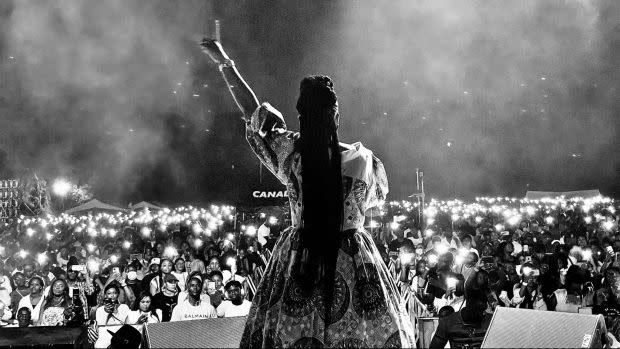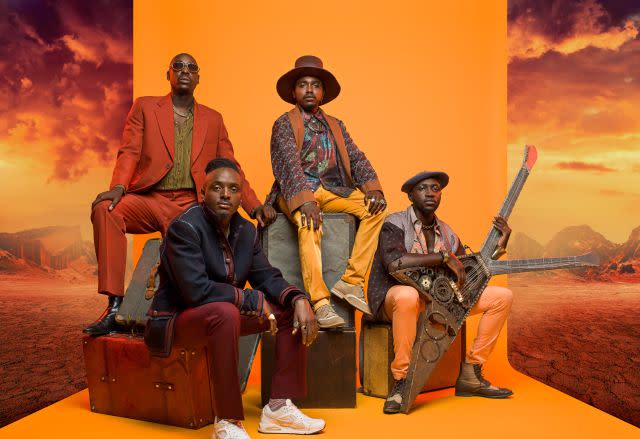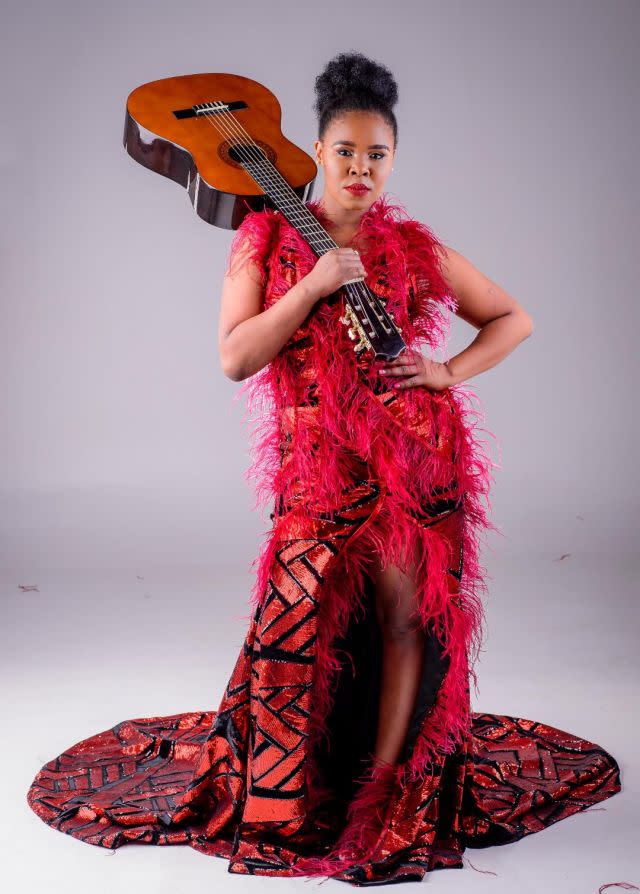The world’s biggest music companies are scrambling to sign African artists

Fueled by a young population, great musical talent, and more streaming opportunities, Africa’s music industry is booming, and the world’s major record labels are taking notice.
Universal Music Group and Warner Music Group, two of the world’s biggest record labels, have their sights on the continent. In the past few years, they have been signing top African artists, hiring personnel for their operations in the continent, and entering deals with local labels and music streaming companies as they strategically position themselves for a share of Africa’s growing music earnings.
Just last month, Universal’s African division, Universal Music Africa, announced the signing of the South African Gospel choir MTN Joyous Celebration. That same month, Warner Music Group said it had appointed music executive Temi Adeniji to the combined role of managing director of its African affiliate, Warner Music South Africa, and senior vice president for strategy for sub-Saharan Africa.
Africa’s music industry is shaping up against a healthy outlook for music sales globally—good news after a year without performances and gigs due to the coronavirus pandemic. Recorded music revenues grew in every world region last year, including Africa and Middle East, according to the most recent Global Music Report (pdf) by the International Federation of the Phonographic Industry, which featured Africa and the Middle East as regions for the first time.
Revenue from recorded music in Africa and the Middle East increased by 8.4% in 2020 from 2019. Streaming revenues in the region went up 36.4% from the previous year, and were the main revenue source for the music industry as a whole for the region.
“K-Pop continues to make great strides, of course, but I would argue the most exciting development this year has been how African music and African artists have been embraced by fans worldwide,” Simon Robson of Warner Music Group said in the report, citing global megahit Jerusalema by South Africa’s Master KG and Nomcebo as an example. (The label purchased the rights to Master KG’s Jerusalema album after its release.)
“The outlook for Africa is very positive,” says Sipho Dlamini, CEO of Universal Music South Africa and sub-Saharan Africa.
Expansion move is new
Universal Music Group has been operating in Africa for more than 30 years, centered in South Africa, but started branching out into the continent a few years ago. One of its big moves in this strategic expansion was the purchase of a major stake in Kenya’s AI records in 2018, which allowed it to digitize and sell East African music internationally.
Universal Music Group’s African roster includes Nigerian Afrobeats singer Tiwa Savage, South African rapper Nasty C, Tanzanian Bongo flava singer Diamond Platnumz, and Kenyan Afro-pop band Sauti Sol.
The company sees opportunities in African artists, live music, and streaming services. But the country’s youthful population is a major draw, says Franck Kacou, managing director at Universal Music Africa and the head of its operations in French-speaking Africa. “Demography is our inner power,” he says.
Africa has the youngest population in the world, with the number of people aged 15 to 24 expected to be more than double the 2015 total of 226 million.
Universal Music Group’s main priority for its Africa business is growing its physical presence in the continent. “We understand that in order to succeed you have to be in various markets,” says Dlamini. From having one operation in South Africa, the company now has offices in Nigeria, Kenya, Cameroon, Côte d’Ivoire and Morocco. It divides the continent into three regions: English, French and Arab-speaking territories.
“We believe in local identities,” says Kacou, a former musician himself who was signed with Warner then Universal. “If you are trying to break an artist the same way you did in SA in Abidjan you might fail, because the people in Abidjan are eager to [get] music of course, but in a certain way.”

The Kenyan band Sauti Sol, which signed with Universal Music Group last year.
Universal Music Group is focused on “growing the entire African ecosystem” in order to add value to artists, Dlamini says, referring to the promise of music publishing, live music, and brand partnerships as revenue streams. If one part of the ecosystem takes a hit, such as live music is doing now because of the Covid-19 pandemic, he adds, artists should be able generate revenue through another part of the ecosystem, such as music publishing and sponsorships.
“It’s not enough to say we will sign artists and release their music,” says Dlamini. “The artist’s livelihood relies on the entire ecosystem functioning.”
As part of its expansion into Africa, Universal Music Group last year launched Def Jam Africa as a standalone label to tap into hugely popular rap and Afrobeats genres.
Warner Group South Africa was born in 2013 after Warner Music Group’s buyout of the shares of South Africa’s Gallo Records in their joint venture, Warner Music Gallo Africa. It’s taking a different approach than Universal, choosing to expand through partnerships.
One such move was Warner Music Group pairing with the Nigerian record label Chocolate City in 2019 to grow the global reach of African stars. Another was Warner Music Group investing in Africori, an African digital distribution, music rights management, and artist development company, to access to its catalog and A&R network, and enable Warner Music Group to establish a presence in many African markets.
“We want to try to support local players and use their knowledge base to build a business and work with them as partners,” says Adeniji. “(Our strategy) has been really focused on trying to help local players really scale and really give them the support and the capital to get bigger or to operate more effectively.”
Warner Music South Africa’s roster features Nigerian Afrobeats singer CKay, South African DJ and producer Sketchy Bongo, and South African singer Zahara. The affiliate started this strategic expansion in English and French-speaking parts of the continent three years ago. Before then, it focused on marketing primarily international content in the continent through its South African affiliate.

South African singer Zahara, who signed with Warner Music South Africa in 2017.
Weak and poorly enforced copyright laws
While the potential and opportunities in African music are hugely evident, weak copyright laws and poor enforcement remain as challenges. For decades, these have slowed down monetization of music in the continent and deprived African artists of revenue from licensing their music and giving their performance and branding rights.
The presence of streaming services has also helped combat the impact of piracy, Dlamini says. Universal Music Group and Warner Music Group have entered licensing deals with both local and foreign players, such as Boomplay, Mdundo, Spotify and Apple Music, to stream their catalogs in the continent.
“Technology is definitely a helpful sort of tool to navigating around that,” says Adeniji.
The International Federation of the Phonographic Industry’s opening of an office in Nairobi last year, its first in sub-Saharan Africa, will also help address this issue. The organization promotes the value of recorded music, campaigns for the rights of record producers, and expands the commercial uses of recorded music.
Africa is an important music market, Adeniji says, and its young population makes it particularly valuable. The continent is on a gradual path to monetization, and to become a robust market where paying for music becomes part of the way people engage with the art, she adds.
“I really believe that this is a growth market and it’s not like a ‘tomorrow’ play—it’s a play that’s gonna take some time to really yield and bear fruit,” she says. “With just the unique sounds that come out of the continent…it’s no doubt that it’s a creative center.”
Sign up to the Quartz Africa Weekly Brief here for news and analysis on African business, tech and innovation in your inbox
Sign up for the Quartz Daily Brief, our free daily newsletter with the world’s most important and interesting news.
More stories from Quartz:

